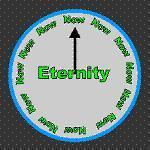
The Terrorist, He Watches
The bomb will go off in the bar at one twenty p.m.
Now it's only one sixteen p.m.
Some will still have time to get in,
some to get out.
The terrorist has already crossed to the other side of the street.
The distance protects him from any danger,
and what a sight for sore eyes:
A woman in a yellow jacket, she goes in.
A man in dark glasses, he comes out.
Guys in jeans, they are talking.
One seventeen and four seconds.
That shorter guy's really got it made; and gets on a scooter,
and that taller one, he goes in.
One seventeen and forty seconds.
That girl there, she's got a green ribbon in her hair.
Too bad that bus just cut her off.
One eighteen p.m.
The girl's not there any more.
Was she dumb enough to go in, or wasn't she?
That we'll see when they carry them out.
One nineteen p.m.
No one seems to be going in.
Instead, a fat baldy's coming out.
Like he's looking for something in his pockets and
at one nineteen and fifty seconds
he goes back for those lousy gloves of his.
It's one twenty p.m.
The time, how it drags.
Should be any moment now.
Not yet.
Yes, this is it.
The bomb, it goes off.
by Wislawa Szymborska










